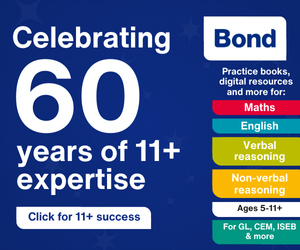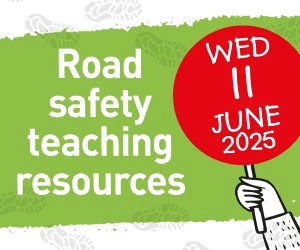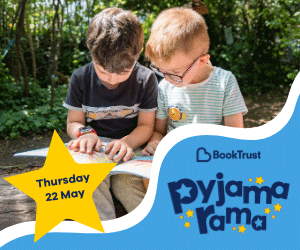Primary Times - the definitive what’s on and where to go family guide of activities and events for children of primary school age. Things to do with your kids during the school holidays including arts and craft activities, music and theatre for children, parties, competitions, days out, and family attractions along with term time drama schools, dance classes, after school clubs and sports activities. Things to do at a place near you!
Tuition for Families in Plymouth
.png)
The level of education our children receive at primary school is normally first class, yet there are always tricks and tips that will help enhance a child’s learning ability and gain a better understanding of any given topic at school.
To supplement school education there are many private tutors and education centres offering complementary study programmes, plus there are various ways parents can encourage children to fine-tune their knowledge through several surprisingly easy ways.
We’ve looked at some of the ways parents can offer guidance here…
Encourage Diary Writing
The Literacy Trust’s report, Children and Young People’s Diary Writing in 2015, found that diary writing has a positive impact on children’s attainment, as well as boosting their motivation to write.
The report showed that pupils who keep a diary are almost twice as likely to write above the expected level for their age compared with children who do not say they keep a diary (27.1% vs 15.5%). What’s more, writing a diary allows children to choose what they want to write about, and 82% of girls and 76% of boys say if they can choose the subject, writing is more fun.
Whilst the research also highlighted a drop in the number of children writing in a diary over the past five years, almost half of children are still writing something in private in their free time. So why not think about the gift of a diary to encourage your children to get writing. Read more at www.literacytrust.org.uk
Use the local library .png)
Libraries are free to join and offer many free services; loaning out books, talking books, CDs, DVDs and many computer services. Many local libraries are especially child friendly, organising regular story times and activities for youngsters during the school holidays and at weekends.
Words for Life
The Words for Life website - www.wordsforlife.org.uk – provides advice and tips to parents who want to support their children with literacy. There are age-related downloadable resources designed to capture a child's imagination and help them enjoy words and language.
Making Maths Add Up
A recent report, ‘The Parent Factor’, published by National Numeracy and the Mayor’s Fund for London, showed that 88% of children said their maths confidence improved when their parents were more involved in their learning. It was found that increased parental engagement leads to significant improvement in children’s concentration levels during maths lessons and better than expected assessment results.
Outside of the classroom there is a useful National Numeracy Family Maths Toolkit, full of ideas and free activities, that has been designed to help families enjoy maths together. Take a look at www.familymathstoolkit.org.uk
.png)
Top maths tips:
- Be positive about maths. Don't say things like "I can’t do maths" or "I hated maths at school"; your child might start to think like that themselves.
- Point out the maths in everyday life. Include your child in activities involving maths such as using money, cooking and travelling.
- Praise your child for effort rather than talent - this shows them that by working hard they can always improve.
Read more at www.nationalnumeracy.org.uk
Tutoring from Mathew Bower
Matthew Bower is an experienced primary school teacher and 11+/SATs tutor. He has developed a scheme of learning for able year 6 pupils to specifically focus on the key year 6 (and above) skills in maths and English grammar. Based on neuroscience research, the work is designed to allow the brain to encode memory more effectively and deeply when it handles small chunks of learning each day. Repetition is the key.
Visit www.mbowertutoring.co.uk/year-6-and-onwards to find out more and to give your year 6 child a boost for just £3 a week! Or call Matthew Bower on 07999 781257 (call before 3pm or after 8pm, or text)
Addressing Dyslexia and Dyscalculia
If a child, who appears to be very intelligent, is struggling at school, it may be worth checking to see if there is an undiagnosed learning difficulty such as Dyslexia or Dyscalculia.
Dyslexia is a specific learning difficulty which mainly affects language and literacy related skills, whilst Dyscalculia affects numeracy. Many children who have a learning difficulty find school work hard when their literacy and memory skills render them unable to tackle tasks they have been set.
Many specialist tutors tailor one-to-one sessions around particular needs, making allowances for the fact that dyslexic children are often exhausted after a day at school. To find out more visit: www.bdadyslexia.org.uk
Gemma Chikola - Home Tutor
All children learn in different ways and have different strengths and the standard primary school classroom is a very busy place with a lot of demands on the teacher’s time. If you feel that your child is having difficulties or is lacking in confidence in a particular area, or perhaps your child is proving to be very able and you are looking for him/her to be challenged, motivated and moved forward. One-2-one tutoring from an experienced professional can provide that much needed boost- in confidence, progress and achievement.
Contact Gemma on 07779161930 or email gemmachikola@gmail.com





